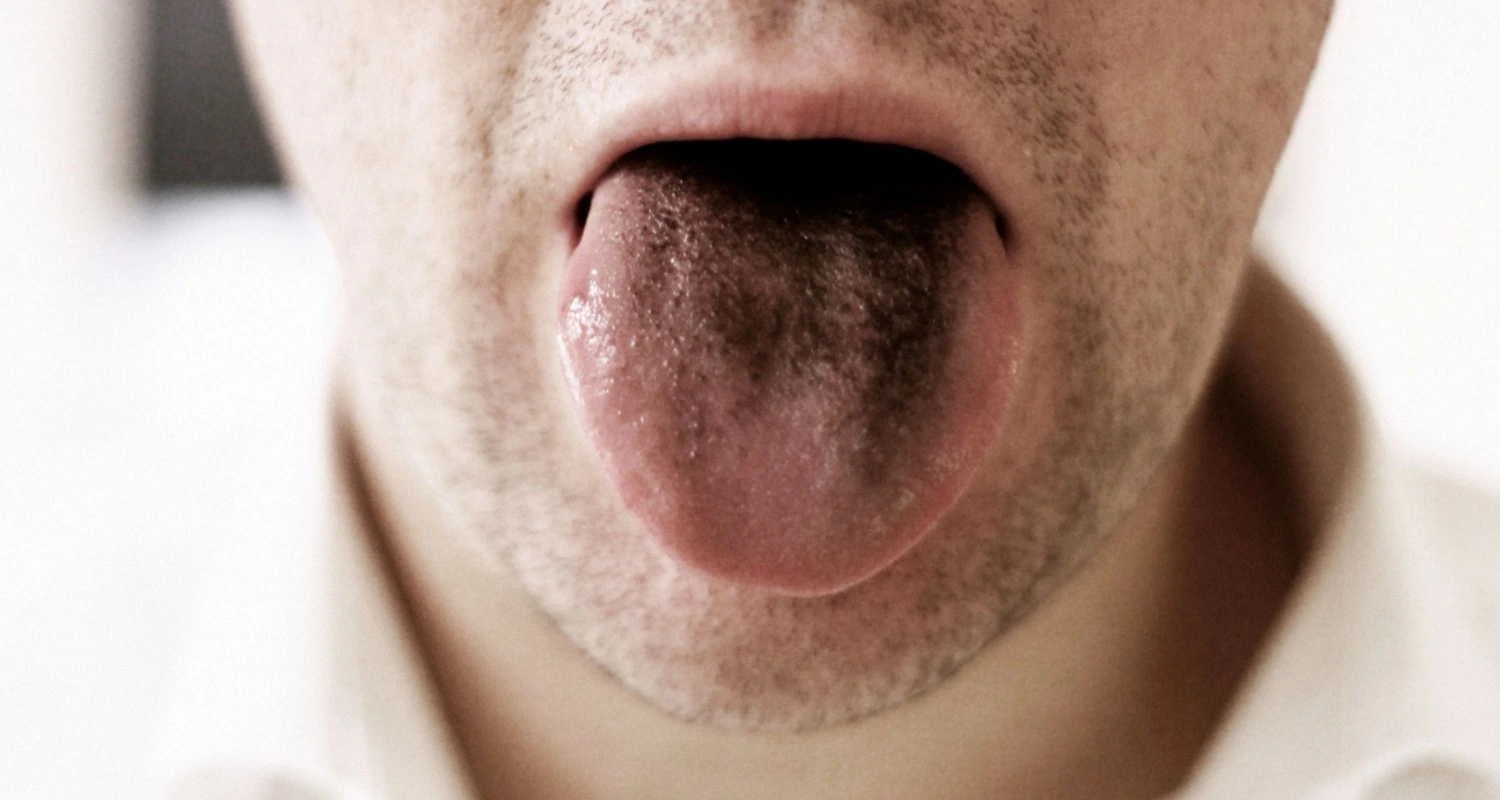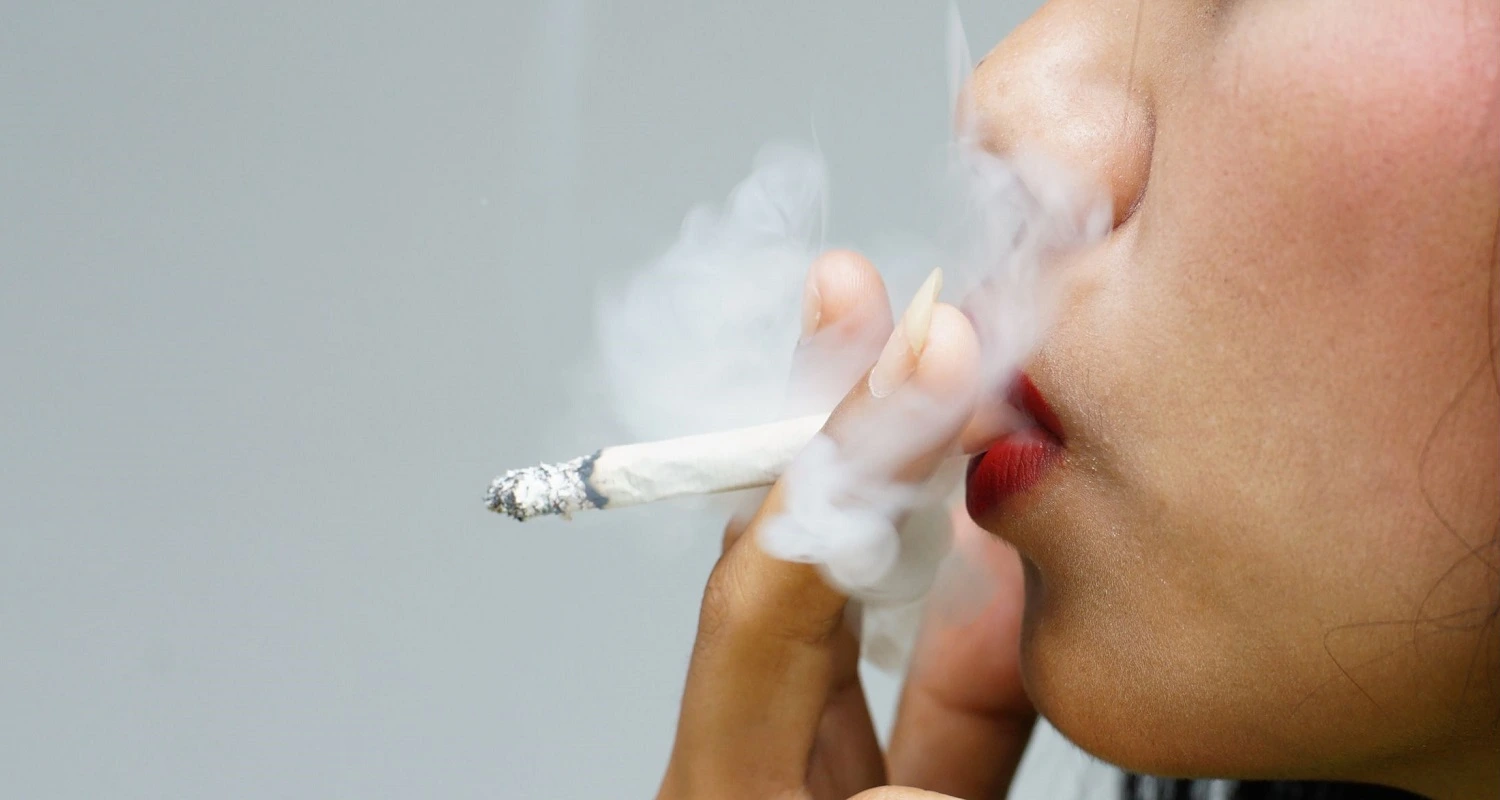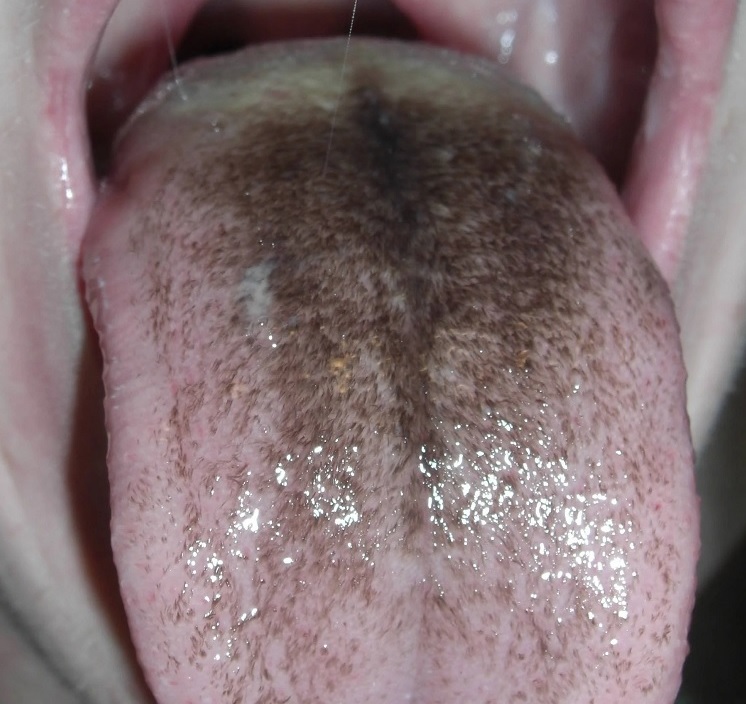Last Updated on: 29th December 2025, 09:04 am
The tongue is made up of tiny bumps, which are sensory receptors called taste buds that allow it to detect different flavors. Black tongue, also known as the black hairy tongue is a benign oral condition, both temporary and harmless. Thus, making black tongue treatment unnecessary, unless it causes pain or has other complications.
It is characterized by an accumulation of dead cells at the level of the taste buds, specifically, filiform papillae. There is an elongation and a change in the color of these papillae: they are darker, between brown and black, generating the appearance of “hairs” on the tongue.
Next, it will be presented how black hairy tongue is diagnosed, if it is possible to prevent it, the specific treatment, and what care should be taken by those who present the condition.
Diagnosis for black tongue or hairy tongue

Having a black tongue can be disturbing, although this condition does not cause health problems, pain, or discomfort. Nonetheless, it is aesthetically quite unpleasant.
During a dental clinical examination, if the dentist observes this condition, he or she may ask the patient questions about their daily routine to determine the cause of the black hairy tongue. They want to know about:
• Oral hygiene habits: How many times a day do you brush your teeth and clean your tongue? What mouthwashes do you use?
• Medication intake: Are you taking any antibiotics?
• Habits: Do you smoke? Or do you have another habit such as alcohol consumption?
• Systemic diseases: Do you suffer from any disease?
• Oral conditions: Do you have a dry mouth? How long ago?
• Feeding: Is your diet soft?
• Drinks: Do you consume a lot of coffee or black tea?
The dentist will also inquire about how long you have had the black color on your tongue if you have any symptoms or discomfort, if you have bad breath, and if you have ever had this condition before.
The answer to these and other questions, in addition to the required dental clinical examination, will help to make a differential diagnosis and rule out the presence of a condition with symptoms similar to black hairy tongue, such as:
• Neoplastic diseases (cancer)
• Autoimmune diseases (HIV)
• Melanin spots on the tongue
• Food or medicines that have stained the tongue
• Fungal or viral infections
• Oral lesions such as hairy leukoplakia
• Black tongue associated with the use of bismuth-containing products, such as Pepto-Bismol, used to treat an upset stomach.
• Hairy black pseudo tongue, associated with infection by fungi, bacteria, or another oral disease.
In some cases, when the clinical examination and questions indicate an irregularity or the diagnosis is not clear, the dentist may request a biopsy of the black or brown tissue observed on the tongue.
Prevention of a black hairy tongue

Preventing hairy tongue is possible if the following recommendations are followed:
1. Proper oral hygiene
Brush your teeth at least 2 times a day and use dental floss. Additionally, clean the tongue by scraping it with a soft bristle brush or a tongue cleaner. The most appropriate hygiene technique is to scrape the tongue from the inside out several times, thus eliminating food debris, bacteria, plaque, and any dead cells on the papillae. To learn more about oral hygiene routines, click on this article.
2. Increase mouth moisture
Having a dry mouth can cause a black tongue, so it is recommended to drink plenty of water and chew gum containing xylitol to increase saliva flow. In some cases of xerostomia (dry mouth), it may be advisable to use saliva substitutes, or occasionally rinse the mouth with a mixture of a tablespoon of salt dissolved in a glass of water.
Remember that the best way to prevent this and other oral diseases is to make regular visits to the dentist; according to the ADA (American Dental Association) these visits must be made at least twice a year; Acquiring this good habit allows for early detection of changes that occur in the teeth, tongue and mouth in general, and avoids future complications.
Black tongue treatments
A black tongue does not have a specific medical or dental treatment; Therefore, the recommendations to prevent it can be considered as a home treatment if it has already occurred.

Treatment will eliminate the factors that favor the appearance of this condition; therefore, in addition to good oral hygiene and increasing mouth moisture, it is recommended to:
• Eat in a balanced way: Add more raw vegetables and fruits to your diet
• Avoid a bland diet: Eat solid food; since it will perform an abrasive action on the tongue, allowing it to be exfoliated and thus preventing the papillae from elongating.
• Give up smoking: Quitting smoking is not only beneficial for your overall health but also essential for maintaining good oral hygiene, as it significantly reduces the risk of developing gum disease and oral cancer.
• Avoid ingesting drinks or food with an excessive amount of coloration: Coffee, black tea, red wine, black licorice, among others.
When to see the dentist?
It is recommended to visit the dentist if you have symptoms of pain, inflammation, or infection. If after several days, at least a week, following the recommendations at home, the black hairy tongue does not improve or return to normal, it is advisable to visit the dentist or a doctor to detect the cause of the condition.
Depending upon the findings and the diagnosis, the specialist could indicate a treatment such as:
• Antibiotics: to help eliminate persistent bacterial infections
• Antifungals: In case of a fungal infection
• Changing medications: If the black tongue is associated with the use of certain medications, the specialist could indicate the need for a change
• Drug prescription: Retinoids, salicylic acid, and vitamin B can be sent by the specialist to treat this condition; Remember to only use them in case of medical prescription, and do not self-medicate
• Surgery: If the above treatments do not work, the hairy area can be removed with surgery.
Black tongue is a harmless condition. It is cosmetically uncomfortable, but it does not normally cause any oral or systemic problems. It may go away by following the recommendations outlined in this article.
Frequently Asked Questions
How can you quickly get rid of a black tongue?
A black tongue typically doesn’t need extensive treatment. Usually, brushing your tongue regularly with a toothbrush should help remove dead skin cells and stains within a few days. If you think a medication or prescribed liquid diet is causing your black tongue, schedule an appointment with your doctor.
Is black tongue reversible?
Although the appearance of a black tongue can be concerning, it is a harmless and reversible condition. We suggest enhancing your oral hygiene routine right away and making an appointment with your dentist if the black tongue does not resolve on its own.
What can I do at home to treat a white tongue?
Most people can eliminate a white tongue by maintaining good oral hygiene and staying hydrated. Here are some tips you can try at home:
a. Drink at least eight glasses of water daily.
b. Use a soft toothbrush to brush your teeth.
c. Brush your tongue or use a tongue scraper to remove the white coating.
d. Use mild fluoride toothpaste and mouthwash.
e. Avoid substances that can expose your tongue to toxins, such as cigarettes and vape pens.
f. Stay away from foods that can irritate your mouth, including spicy, salty, acidic, or very hot foods.
How long does it take for your tongue to return to normal?
Milder tongue injuries typically heal on their own within a week. More serious tongue injuries may need medical treatment, such as stitches and medication, and can take several weeks or months to fully recover. A tongue bite may cause bleeding.
Share:
References
1. Black hairy tongue. (February 12, 2022). Middlesex Health. https://middlesexhealth.org/learning-center/diseases-and-conditions/black-hairy-tongue
2. Black Hairy Tongue: Causes, What It Is & Treatment. (Reviewed: April 7, 2022). Cleveland Clinic. https://my.clevelandclinic.org/health/diseases/17918-black-hairy-tongue
3. Black hairy tongue – Diagnosis and treatment. (March 8, 2018) Mayo Clinic. https://www.mayoclinic.org/diseases-conditions/black-hairy-tongue/diagnosis-treatment/drc-20356080
4. Gurvits, G.E. (2014).Black hairy tongue syndrome. World Journal of Gastroenterology, 20(31), 10845. https://doi.org/10.3748/wjg.v20.i31.10845
5. Holland, K. (May 12, 2017). What Causes a Hairy Tongue and How to Treat It. Healthline. https://www.healthline.com/health/dental-and-oral-health/hairy-tongue
6. Osborn, C. O. (January 4, 2022). Why Is My Tongue Black? Healthline. https://www.healthline.com/health/black-tongue
7. Villines, Z. (November 29, 2019). Black tongue: Causes and what to do. Medical News Today. https://www.medicalnewstoday.com/articles/327163
8. Watson, S. (Reviewed: August 23, 2020). What Is Black Hairy Tongue?. WebMD. https://www.webmd.com/oral-health/guide/black-hairy-tongue
9. Wright, B. (December 2014). Hairy tongue. DermNet. https://dermnetnz.org/topics/hairy-tongue
-
Dr. Yeidy Carolina Mesa [Author]
DDS Yeidy Carolina Mesa Passionate Dentist | Advocate for Accessible Oral Health Education Graduating from Universidad CES in 2022, I am a dedicated general dentist with a lifelong passion for helping others and making a meaningful impact in the world. My journey into dentistry began at the age of 7, inspired by my own experience with braces and overcoming a fear of the dentist. This personal journey shaped my mission to help patients conquer their own dental anxieties and embrace a healthier,...
View all posts
-
Nayibe Cubillos M. [Medical Reviewer]
Pharmaceutical Chemestry |Pharmaceutical Process Management | Pharmaceutical Care | Pharmaceutical Services Audit | Pharmaceutical Services Process Consulting | Content Project Manager | SEO Knowledge | Content Writer | Leadership | Scrum Master
View all posts
A healthcare writer with a solid background in pharmaceutical chemistry and a thorough understanding of Colombian regulatory processes and comprehensive sector management, she has significant experience coordinating and leading multidisciplina...Recent Posts
















